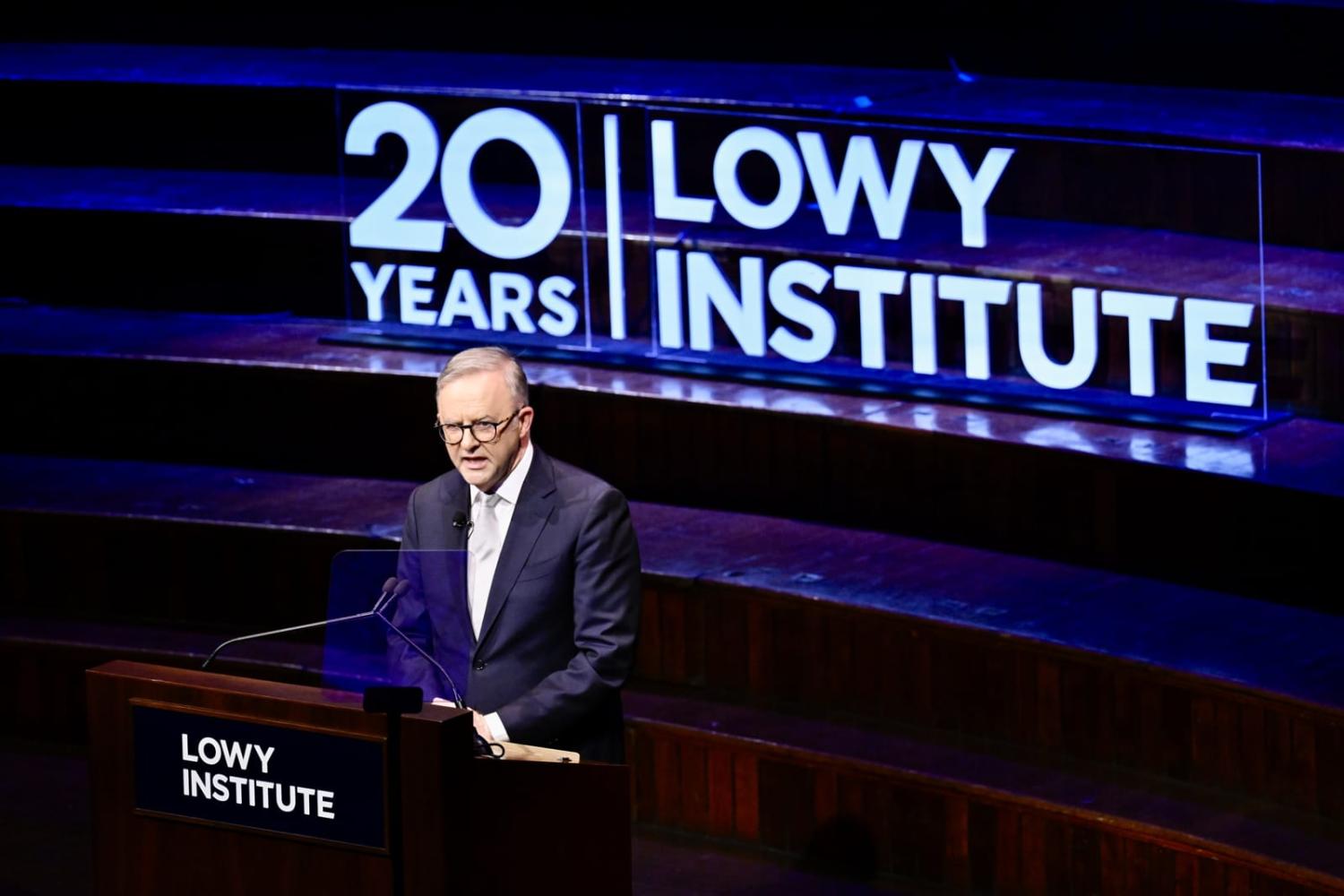Call it the Goldilocks test. Too hot, and you can end up with a “negative globalism” moment. That was the awkward phrase adopted by former prime minister Scott Morrison in his 2019 Lowy Lecture, pouring scorn on the very international system that Australia had until then championed for delivering free trade and prosperity.
Or too cold, and you risk what The Australian’s Greg Sheridan has today described as “the single most boring foreign policy speech ever written” – Prime Minister Anthony Albanese’s 2023 Lowy Lecture, delivered to a packed Sydney Town Hall last night.
Only Albanese’s speech, from a foreign policy point of view, seemed to me to get the temperature just right.
It’s not the job of the prime minister to lob unexpected rhetorical grenades. That’s for commentators. Albanese, as he put it, wants to project “calm and consistency”. That rarely makes for exciting newspaper headlines but is most often the right approach for Australia in the world.
A speech like this serves as a distillation of the government’s thinking about foreign policy. Indeed, if anything, a survey speech of this kind should be more regular. The government can signal Australia’s view about ever-shifting contemporary events while also pointing to evolving contours in global affairs. Making frequent speeches is far more effective – and efficient – than the laborious bureaucratic work of producing a “white paper” that dates the moment it hits the shelves.
And audience matters. For non-specialists, which was most of the 500-strong audience, the intricacies of “Indo-Pacific diplomacy”, which we geeks spend our days dissecting, would have been new.
Just as importantly, from a political perspective, Albanese has little to gain right now from drawing more attention to international issues with a grand pronouncement or big announcement. He has been criticised in the last few months for his frequent overseas travel, most recently for attending APEC in San Francisco, which amounted to his second trip to the United States inside a fortnight. There are good reasons for leaders to slow down the diplomatic merry-go-round. Albanese could only defend his travel as “engagement”, noting he would have been the first Australian PM in 30 years to have skipped APEC.
And when looking to a turbulent world, Australia has already spent months making its policy position plain. Following the speech, Lowy Institute Executive Director Michael Fullilove quizzed Albanese about the war in Gaza, and it wasn’t a surprise that the PM stuck to a tested formula in response. There is little for Australia to gain by its leader improvising policy on the stage. (Albanese would no doubt remember Kevin Rudd doing exactly that with Australia’s opposition to Japanese whaling.)
The same is true for Ukraine, China, relations with Indonesia and the Pacific, or issues such as climate change. The same commentators complaining that Albanese’s speech was boring would be the first to jump on the PM for a “blunder” should he make an abrupt about-face.
With days before Australia winds up for the year, people are focused domestically. “Cozzie livs”, the slang phrase for cost of living, was voted the Macquarie Dictionary word of 2023 because it’s the issue of the moment.
Close listeners would have also picked up a couple of nuggets in Albanese’s speech. He pointed to “remarkable progress” with Indonesia towards a defence cooperation agreement. “This is something President Widodo and I have discussed on a number of occasions,” Albanese said. “This new agreement will be binding under international law, elevating our defence partnership and enabling new ways for us to work together.”
Albanese also made the point that his counterpart from Papua New Guinea, James Marape, will in February become the first Pacific Islands leader to address the Australian parliament – an invitation that should really have been extended long before now.
But details are boring, right?

